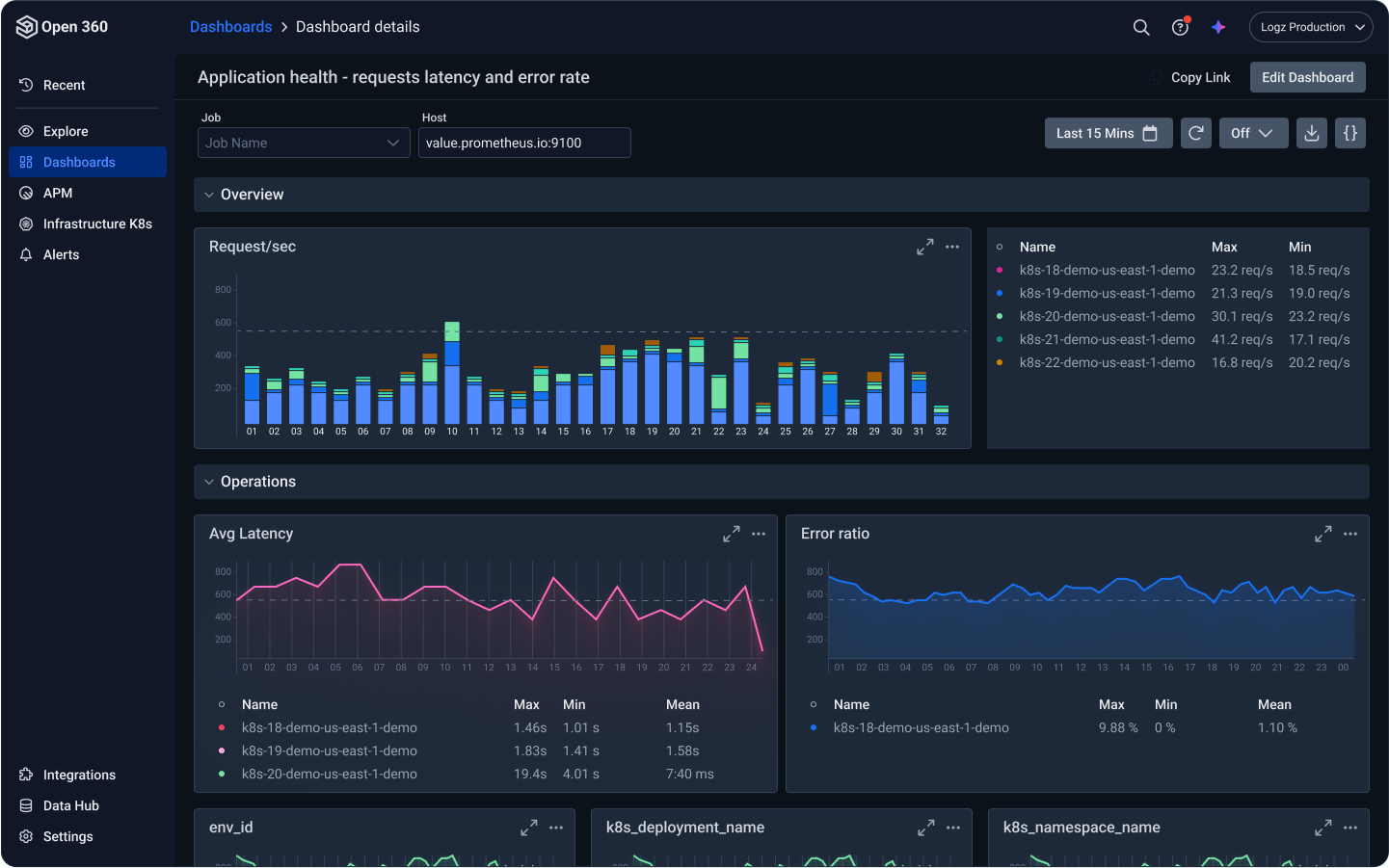
OpenSearch Is Now Generally Available!
July 12, 2021

I’m thrilled to say that OpenSearch has reached general availability (GA) with the release of version 1.0. This release represents a significant milestone and noteworthy accomplishment for a new open source initiative that was only launched a few months ago.

I vividly remember that moment at the beginning of the year when we all woke up to Elastic’s announcement that it would take Elasticsearch and Kibana off the Apache 2.0 OSS license. We all learned the hard way on that fateful day that a vendor-owned open source project can turn on you.
At Logz.io, our service has traditionally relied heavily on the open source ELK stack, and while I believe that it took some courage, I’m proud to say that we remain steadfast in our commitment to the open source community. That’s why we have continued to push to keep these important projects open source. We were also one of the first to try out OpenSearch on our own system.
With the release of OpenSearch v1.0 and its broader availability for use by organizations similarly committed to open source monitoring, we all owe AWS a great deal of gratitude for leading the charge. The AWS team has put significant engineering effort into forking the project to reach this important milestone, and we’re proud to have taken our part in this journey.

First and foremost, the GA release offers a pure Apache 2.0 open source equivalent of the Elasticsearch and Kibana projects (v7.10.2) we all know and love, without any intermingled proprietary bits. On top of this baseline, the GA release contains the rich suite of plugins from Open Distro for Elasticsearch, which were merged into OpenSearch. It also contains support for building new OpenSearch plugins.
In addition, the GA provides a number of new capabilities around data stream support for OpenSearch Dashboards, ARM64 support, plugins for distributed tracing analytics, and for scheduling and tenant reporting, to name a few. Geared towards production deployments, the release comes with artifacts for deploying in production as a standalone tool as well as for embedding into other products.
With that said, OpenSearch reaching GA status is merely the beginning of the open source journey. Beyond v1.0, the roadmap plan includes a v1.1 minor release on August 30th, with additional capabilities around cross-cluster replication, anomaly detection, unified notifications, bucket-level alerting, plugins, and more. We plan to release two more minor versions later this year around October and November 2021 timeframe, with the next major release, v2.0, expected in early 2022.
If you want to learn more about how the project started, where it’s heading, and how you can get involved, check out my recent post OpenSearch: The Open Source Successor of Elasticsearch.
It’s an exciting time to be a member of this community!




